Search Results
Search
Filter results
Advanced Filters
Your search returned 562 Solutions
-
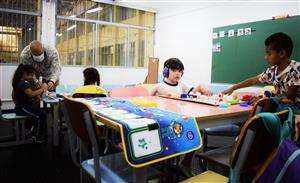
Comprehensive after-school programme supporting children with intellectual disabilities to attend mainstream classes
Instituto Jô Clemente's SEAC Project, Brazil: Enhances regular education access for children with disabilities. Assisted over 320 children and teenagers with disabilities in 2022, providing resources and training for teachers and families.
Specialized Educational Assistance Centre (SEAC), Brazil -
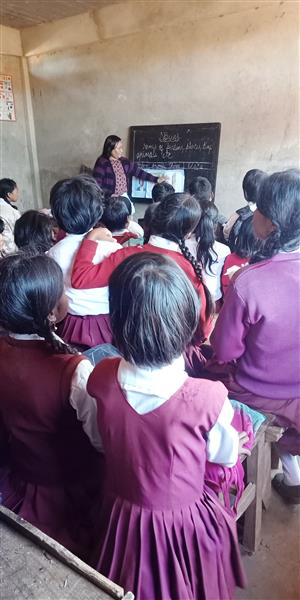
Training teachers in inclusive techniques and learning materials
Regional Action for Inclusive Education (RAISE) works with local NGO partners that act as regional resource centres for inclusive education. These centres promote the participation of children with disabilities in 78 government primary schools and are to become autonomous centres of expertise on Inclusive Education.
Light for the World Austria, RAISE Project, India -
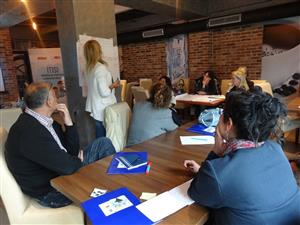
Ministry of Education organizing Individual Training Plans for transition to work
Individual Transition Plans (ITPs) are designed to support young people with special educational needs in the essential transitions in their lives. An ITP is designed and implemented collaboratively by the student, their parents and teachers, and educational guidance and employment service providers.
Montenegrin Ministry of Education, Science and Sports, Individual Transition Plans (ITPs) for Students with Special Needs, Montenegro -
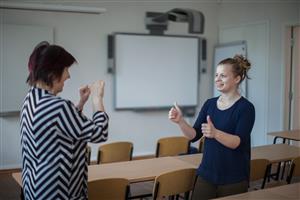
Access to higher education in Estonia
By providing training for entrants, study and career counselling, and scholarships, Estonia’s Primus Programme has successfully acted as a real door-opener for numerous students with disabilities. The programme was funded by the European Social Fund and ended in 2015, but many measures continue to be implemented.
Estonian Ministry of Education, Higher Education Department, Primus Programme, 2008-2015 by the Ministry of Education and Research, Archimedes Foundation and partners, Estonia, Estonia -
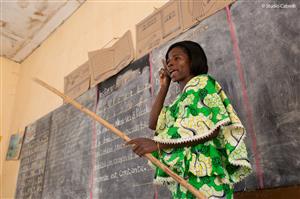
Itinerant teachers deliver Inclusive Education in Togo
Handicap International uses the Itinerant Teacher model, by assigning teachers with disability-specific skills to primary schools in different villages, working alongside regular teachers. By 2015 8 teachers had been trained each of them supporting 15 to 20 children. In total there were 900 beneficiaries from the project.
Humanity & Inclusion France, United Kingdom -
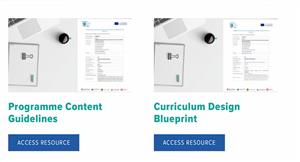
European university alliance fostering inclusion by sharing tools and good practices
CHARM-EU Alliance: Enhances European higher education inclusiveness and mobility. Focuses on creating inclusive environments and removing barriers. Provides free tools benefiting students, staff, and stakeholders worldwide.
CHARM-EU, Spain -
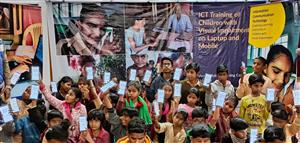
A concerted effort for the usage of accessible ICT devices supporting children with disabilities in low-income contexts
Sightsavers India, a national NGO, promotes inclusive education with accessible ICT devices in remote areas. In 2022, it supported over 6,000 visually impaired learners across mainstream primary and secondary schools.
Eight-State Inclusive Education Programme, India -
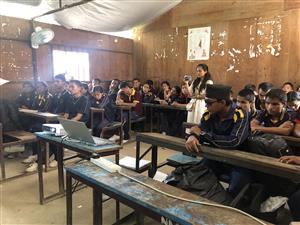
A countrywide policy framework for lifelong inclusive learning
The policy consists of 43 working policies, 17 strategies and 13 guiding principles and is implemented by programme committees at the local and provincial level, as well as by NGOs under the supervision of MEST. The adoption of specific teaching plans and school implementation are flexible and are based on local circumstances.
Nepalese Ministry of Education, Science, and Technology, Inclusive Education Policy (2016), Nepal -
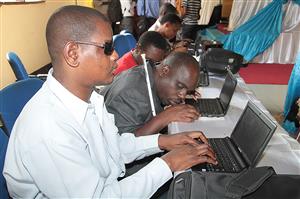
Using computers to support blind learners on all levels of education
The objective of the project is to integrate assistive technology in the national education system, and thus ensure that assistive technology for people with visual impairment is available at the workplace and at all levels of education. Representatives from the identified proposed project areas were thoroughly involved in the planning process.
Tanzania League of the Blind, Tanzania -
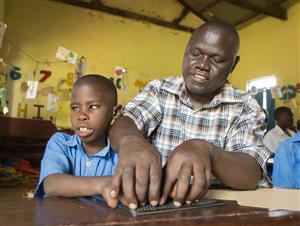
USDC advocates for inclusive education and modifies existing school environments. Schools are made accessible through different factors: teachers, children and parents are sensitised; assistive devices are provided; children with disabilities are integrated into society.
USDC supports schools in helping them to become accessible. It also empowers the parents of children with disabilities to advocate for inclusive policies and teachers are sensitised about disability. To ensure sustainability, USDC works within existing structures and partners with government and other service providers.
Uganda Society for Disabled Children, A fully inclusive and accessible school in Uganda, Uganda
- Page 1
- Page 2
- Page 3
- Page 4
- Page 5
- Page 6
- Page 7
- Page 8
- Page 9
- Page 10
- Page 11
- Page 12
- Page 13
- Page 14
- Page 15
- Page 16
- Page 17
- Page 18
- Page 19
- Page 20
- Page 21
- Page 22
- Page 23
- Page 24
- Page 25
- Page 26
- Page 27
- Page 28
- Page 29
- Page 30
- Page 31
- Page 32
- Page 33
- Page 34
- Page 35
- Page 36
- Page 37
- Page 38
- Page 39
- Page 40
- Page 41
- Page 42
- Page 43
- Page 44
- Page 45
- Page 46
- Page 47
- Page 48
- Page 49
- Page 50
- Page 51
- Page 52
- Page 53
- Page 54
- Page 55
- Page 56
- Page 57